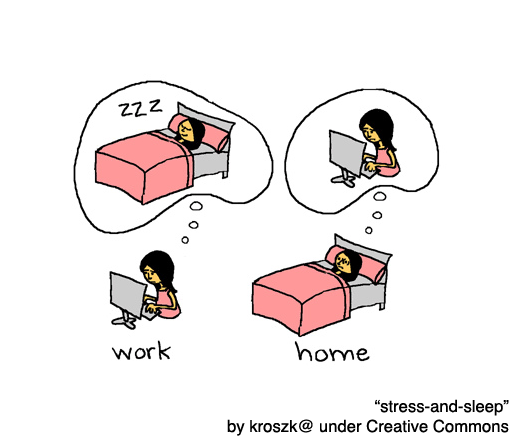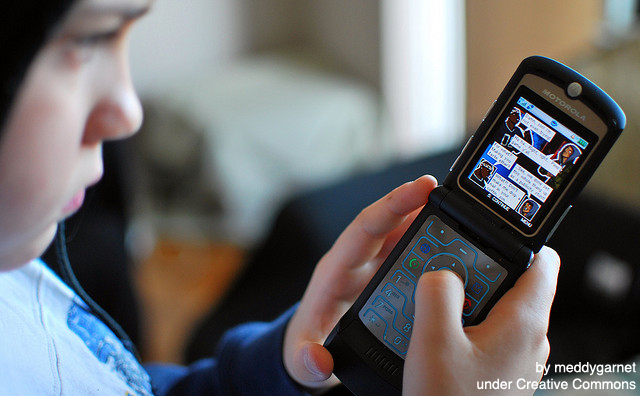
Post by Kyle St. Romain.
This week I’ll introduce you to a sleep tip that many of you are probably aware of, but do not practice: keeping the phone (and other electronics) away from the bed.
I often think, as do a lot of people I meet, that sleeping with the cell phone, tablet, or other electronic device by the bed is bad for sleep. Why? Because, with your phone at an arm’s length away, we are constantly tempted to check our email or read an excessive amount of news before bed—electronics enable the insomniac in all of us. To help reduce the negative consequences of sleeping in an ever-connected, 24/7 world, I’ve put together three steps to help you get the good night’s sleep you’ve been craving.
Step One: Turn The Screen Off
The first way that electronics affect sleep is by exposing us to unnaturally bright light after. Light inhibits the body’s release of melatonin, a hormone that promotes sleep. This is a natural reaction, and is what helps our bodies stay awake during the daytime; however, when you introduce artificial light after the sun has gone down, your body is tricked into thinking it should still be awake. We all have different light sensitivities, and I didn’t notice the effect until I started reading under a full-spectrum light. While it helped with Seasonal Affective Disorder (the winter blues), it kept me wide-awake and alert far past my bedtime—more than any amount of coffee ever could.
I touched on this idea a while back in an article about color shifting your computer screen for better sleep. This little trick not only helps alleviate eyestrain, but it also helps your body prepare for sleep.
To further resolve this problem, try setting an electronics curfew for yourself. All you need to do is have the discipline to cut out your use of electronics 60 to 90 minutes before you go to sleep. Easier said than done, I know.

Step Two: Eliminate Distractions
Even if our bodies didn’t respond to bright lights, electronics affect us psychologically with the media they display. Have you ever found yourself unable to sleep after a scary movie? It’s likely due to the adrenaline your body produces in its natural fight-or-flight reaction.
Eliminating stress and anxiety triggers before sleep should help your mind stay calm and collected—an essential ingredient for a good night’s rest. So even if you can’t pry yourself away from watching another episode of your favorite show or reading that last-minute email, save the stressful stuff for the morning.
Step Three: Move Your Electronics Away From The Bed
If you’ve been unable to get that restorative sleep you’ve been aiming for, the problem might be sitting right next to you. And even if you aren’t actively using electronics before bed, they can still disrupt your sleep. Anything electronic produces electromagnetic radiation (EMR), which affects your body’s production of melatonin and serotonin. EMR is also thought to make us more sensitive to the fight-or-flight state, which is otherwise caused by psychological triggers like a scary movie or an upsetting email. This is known as the “wired-and-tired” effect, and is one of the reasons we find ourselves awakening from a long sleep, but still feeling exhausted.
To reduce your exposure to EMR, try moving your electronics as far away from the bed as possible. While it may take a few weeks, or even months to see results, the long-term benefits will be well worth it. After all, there is nothing natural about sleeping next to a cell phone.

